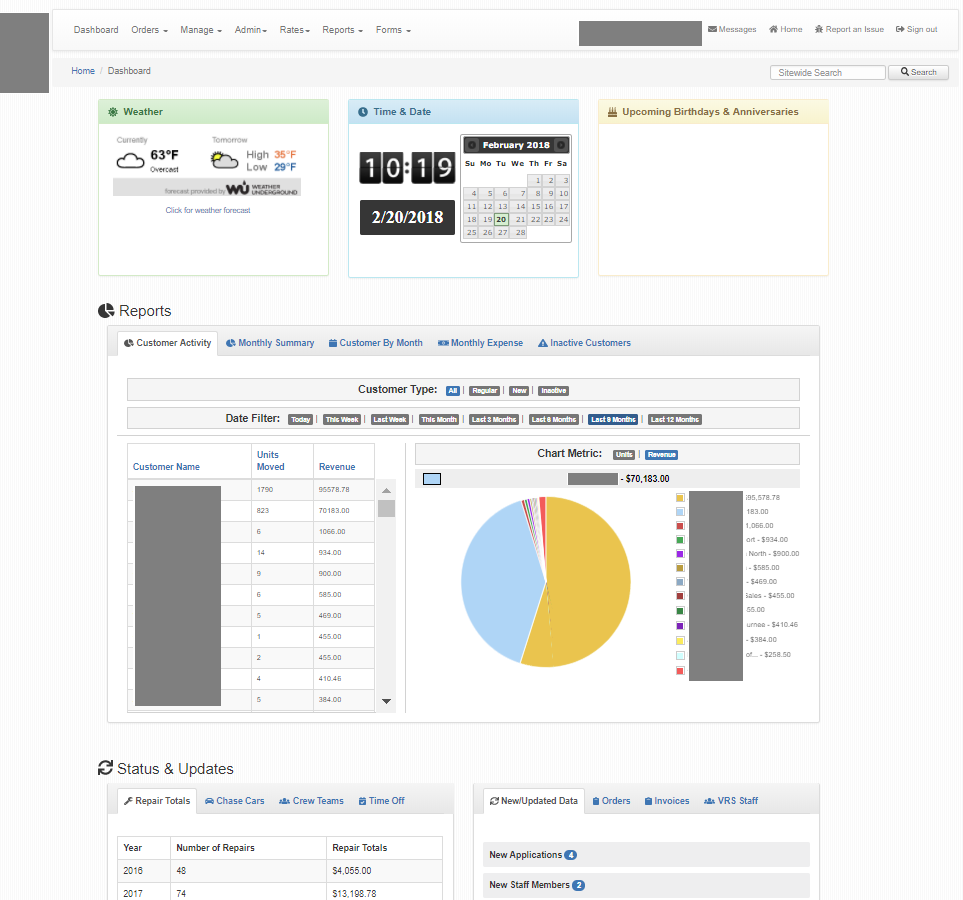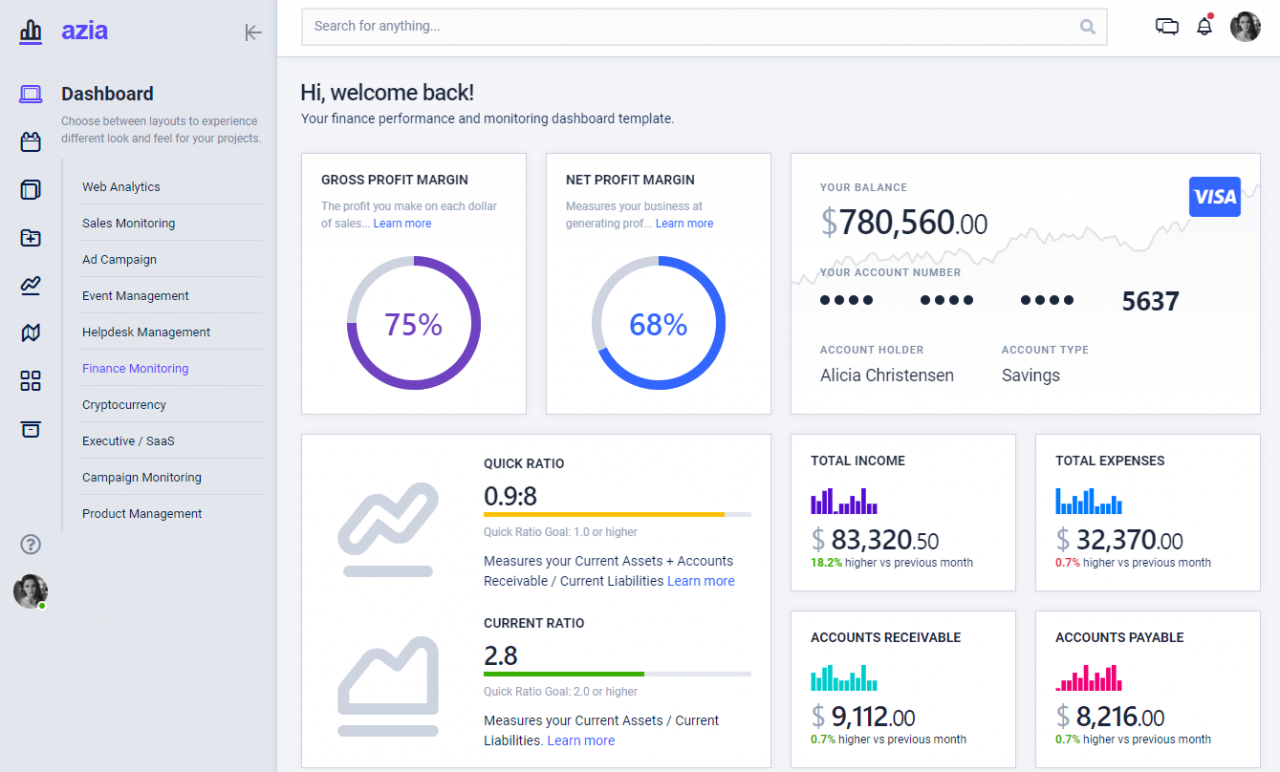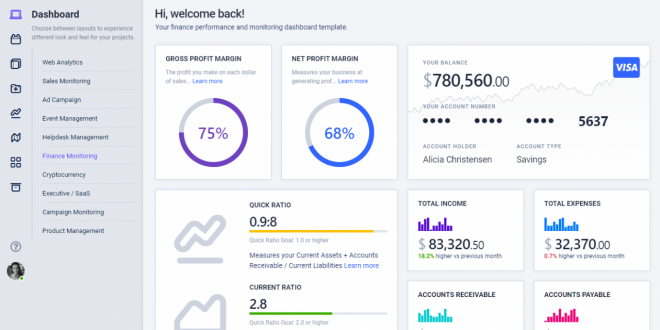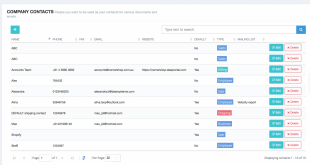ERP web applications are transforming the way businesses operate, offering a comprehensive and integrated solution for managing all aspects of an organization. This cutting-edge technology seamlessly combines the power of enterprise resource planning (ERP) with the accessibility and convenience of web-based platforms.
ERP web applications provide a centralized hub for managing financial operations, supply chains, customer relationships, and human capital, empowering businesses with real-time data, enhanced collaboration, and improved decision-making capabilities.
Introduction to ERP Web Applications
Enterprise Resource Planning (ERP) systems are comprehensive software solutions that integrate various business functions and processes into a single, centralized platform. ERP systems provide real-time visibility and control over critical business operations, enabling organizations to streamline processes, improve collaboration, and make informed decisions.
In today’s digital landscape, web applications play a crucial role in modern ERP systems. Web-based ERP solutions offer several advantages over traditional desktop applications, including increased accessibility, flexibility, and cost-effectiveness.
Benefits of ERP Web Applications
- Increased Accessibility:Web-based ERP applications can be accessed from any device with an internet connection, allowing users to work remotely and collaborate seamlessly with colleagues and stakeholders.
- Enhanced Flexibility:Web applications provide greater flexibility than desktop applications, allowing users to customize their dashboards, reports, and workflows to meet their specific needs.
- Reduced Costs:Web-based ERP solutions typically have lower upfront and ongoing costs compared to desktop applications, as they eliminate the need for hardware installation and maintenance.
- Improved Collaboration:Web applications facilitate real-time collaboration and information sharing, enabling teams to work together more efficiently and effectively.
- Streamlined Processes:ERP web applications automate and streamline business processes, reducing manual tasks and errors, and improving overall operational efficiency.
Role of Web Applications in Modern ERP Systems
Web applications have become an integral part of modern ERP systems, providing a user-friendly and accessible interface for managing various business functions. These applications offer a range of capabilities, including:
- Financial Management:Web-based ERP applications provide tools for managing financial transactions, such as accounts payable, accounts receivable, and general ledger.
- Supply Chain Management:These applications help organizations manage their supply chain, including inventory control, procurement, and logistics.
- Human Capital Management:Web-based ERP solutions provide tools for managing employee information, payroll, and benefits.
- Customer Relationship Management (CRM):These applications help organizations manage their customer relationships, including sales, marketing, and customer service.
- Project Management:Web-based ERP applications provide tools for planning, tracking, and managing projects.
By leveraging web applications, modern ERP systems empower businesses to optimize their operations, improve decision-making, and gain a competitive edge in the digital age.
Key Features and Functionality
ERP web applications are characterized by a comprehensive suite of features and functionalities designed to streamline and enhance business operations across various departments. These features encompass core business processes, enabling organizations to manage their operations efficiently and effectively.
Key features of ERP web applications include:
Financial Management
ERP web applications provide robust financial management capabilities that enable organizations to manage their financial resources effectively. These capabilities include:
- General ledger accounting
- Accounts payable and receivable
- Cash flow management
- Financial reporting and analysis
Supply Chain Management
ERP web applications offer comprehensive supply chain management capabilities that help organizations optimize their supply chains. These capabilities include:
- Inventory management
- Procurement management
- Order fulfillment
- Warehouse management
Customer Relationship Management
ERP web applications provide customer relationship management (CRM) capabilities that enable organizations to manage their interactions with customers effectively. These capabilities include:
- Customer data management
- Sales and marketing automation
- Customer service and support
- Customer analytics
Human Capital Management
ERP web applications offer human capital management (HCM) capabilities that help organizations manage their human resources effectively. These capabilities include:
- Payroll and benefits management
- Time and attendance tracking
- Performance management
- Talent acquisition and development
Benefits of Using ERP Web Applications

ERP web applications offer a plethora of advantages that can significantly enhance business operations and drive growth. Let’s explore some of the key benefits of using ERP web applications:
Improved Efficiency and Productivity:ERP web applications streamline and automate various business processes, eliminating manual tasks and reducing errors. This results in increased efficiency, reduced lead times, and enhanced productivity across the organization.
Enhanced Collaboration and Communication
ERP web applications foster collaboration and communication among different departments and teams within an organization. By providing a central platform for sharing data and insights, ERP systems facilitate real-time decision-making and improve coordination between teams.
Increased Data Accuracy and Security
ERP web applications ensure data accuracy and integrity by maintaining a single, centralized database. This eliminates data redundancy and inconsistencies, leading to improved data reliability. Additionally, ERP systems employ robust security measures to protect sensitive business information from unauthorized access and cyber threats.
Implementation and Integration
ERP web applications require careful planning and execution to ensure successful implementation and integration. This involves several key steps that must be addressed.
Effective implementation involves meticulous planning, preparation, data migration, conversion, training, and adoption. Each of these aspects plays a crucial role in ensuring the seamless integration of the ERP web application into your organization’s operations.
Planning and Preparation
Thorough planning and preparation are essential for a successful ERP web application implementation. This includes:
- Defining project scope and objectives
- Identifying stakeholders and their roles
- Establishing a project timeline and budget
- Creating a communication plan
- Selecting and configuring the ERP web application
Data Migration and Conversion
Data migration and conversion are critical steps in ERP web application implementation. This involves:
- Extracting data from legacy systems
- Converting data to the new ERP web application format
- Loading data into the ERP web application
- Verifying data accuracy and integrity
Training and Adoption
Training and adoption are essential for successful ERP web application implementation. This includes:
- Providing training to users on the new ERP web application
- Developing documentation and support materials
- Encouraging user adoption and feedback
- Providing ongoing support and maintenance
Best Practices for ERP Web Application Development
Best practices for developing ERP web applications are crucial to ensure optimal functionality, usability, and scalability. By adhering to these guidelines, developers can create robust and efficient solutions that meet the unique requirements of businesses.
Key best practices include:
User-centric Design
ERP web applications should be designed with the end-user in mind. This involves understanding their needs, workflows, and pain points. By prioritizing user experience, developers can create intuitive and easy-to-use applications that enhance productivity and adoption.
Agile Development Methodologies
Agile development methodologies, such as Scrum or Kanban, promote iterative development and continuous improvement. By breaking down the development process into smaller sprints, teams can quickly deliver value to users and respond to changing requirements.
Scalability and Performance Optimization
ERP web applications must be able to handle growing data volumes and user traffic without compromising performance. Scalability and performance optimization techniques, such as load balancing, caching, and database indexing, ensure that applications remain responsive and efficient even under heavy workloads.
6. Examples and Case Studies: Erp Web Application
To illustrate the successful implementation of ERP web applications, we present real-world examples and case studies that showcase their benefits and impact across various industries.
These case studies provide valuable insights into how ERP web applications have transformed business operations, improved efficiency, and enhanced collaboration within organizations.
Successful Implementations
- Manufacturing:A leading automotive manufacturer implemented an ERP web application to streamline production processes, optimize inventory management, and improve supply chain visibility.
- Retail:A global retail chain deployed an ERP web application to centralize customer data, enhance omnichannel experiences, and optimize inventory allocation.
- Healthcare:A major hospital network implemented an ERP web application to improve patient care coordination, streamline billing processes, and enhance financial management.
Case Studies
- Case Study 1:A technology company implemented an ERP web application that reduced operational costs by 20% and improved employee productivity by 15%.
- Case Study 2:A manufacturing company implemented an ERP web application that increased production efficiency by 10% and reduced inventory waste by 15%.
- Case Study 3:A healthcare provider implemented an ERP web application that reduced patient wait times by 15% and improved patient satisfaction by 20%.
Future Trends and Innovations
ERP web applications are constantly evolving, with new trends and innovations emerging all the time. These innovations are helping to make ERP systems more powerful, efficient, and user-friendly.Some of the most important future trends in ERP web applications include:
- Artificial intelligence and machine learning
- Cloud computing and SaaS solutions
- Mobile and remote access
Artificial intelligence and machine learning
Artificial intelligence (AI) and machine learning (ML) are two of the most important emerging technologies in the world today. AI-powered ERP systems can automate tasks, improve decision-making, and provide insights that would be impossible to obtain manually. For example, AI can be used to:
- Identify and resolve potential problems before they occur
- Optimize inventory levels
- Improve customer service
Cloud computing and SaaS solutions
Cloud computing is a model for delivering IT services over the internet. SaaS (Software as a Service) is a cloud-based delivery model in which software is licensed on a subscription basis. Cloud computing and SaaS solutions are becoming increasingly popular for ERP systems, as they offer a number of advantages, including:
- Reduced costs
- Increased flexibility
- Improved scalability
Mobile and remote access, Erp web application
Mobile and remote access to ERP systems is becoming increasingly important as more and more businesses allow their employees to work from anywhere. Mobile ERP apps allow employees to access their ERP system from anywhere with an internet connection. This can improve productivity and collaboration, and it can also make it easier for businesses to respond to customer needs.
Final Thoughts

In conclusion, ERP web applications are a game-changer for businesses of all sizes, enabling them to streamline operations, boost productivity, and gain a competitive edge in today’s dynamic business landscape. As technology continues to evolve, ERP web applications will undoubtedly remain at the forefront of innovation, empowering businesses with even more powerful and sophisticated tools to drive success.
Originally posted 2024-05-20 16:23:40.
 Bussines News Daily
Bussines News Daily



